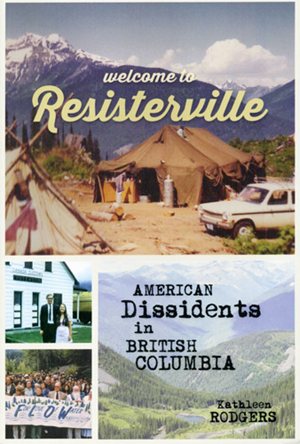Welcome to Resisterville: American Dissidents in British Columbia

Support Canada's History in other ways (more)
by Kathleen Rodgers
University of British Columbia Press, Vancouver, 2014
250 pp., $29.95 paperback
During the Vietnam War years, thousands of Americans fled north to seek refuge in the West Kootenay region of British Columbia. While some of these migrants were draft dodgers avoiding conscription into the United States army, most were part of an emerging counterculture in search of a more egalitarian, humble, and peaceful society.
In her book Welcome to Resisterville: American Dissidents in British Columbia, Kathleen Rodgers looks at these migrants, their motivations, and their impact. The pages are dotted with excerpts from over fifty oral history interviews, highlighting the personal experiences of both the migrants and the locals in British Columbia.
Amid a growing wave of Canadian nationalism and anti-Americanism in the 1960s, many migrants were met with distrust and animosity. Others, however, found common ground with like-minded groups such as the Quakers and Doukhobors who had also settled in the area. And, in both their private and public lives, all negotiated ways to carve out the society they felt compelled to create.
Slowly but surely, Americans in British Columbia created new institutions, like community centres, schools, and publications, to support and strengthen the counterculture movement. They became active proponents of local food initiatives, co-operatives, and environmental sustainability, and eventually many of their ideals made their way into mainstream society.
Welcome to Resisterville is more a sociological than a historical study of the American migrants and their impact on the West Kootenays. Nonetheless, Rodgers provides insight into this corner of Canada and the legacy of the men and women who were committed to creating change.
— Joanna Dawson (Read bio)
Joanna Dawson is Canada's History Society's Acting Director of Programs.